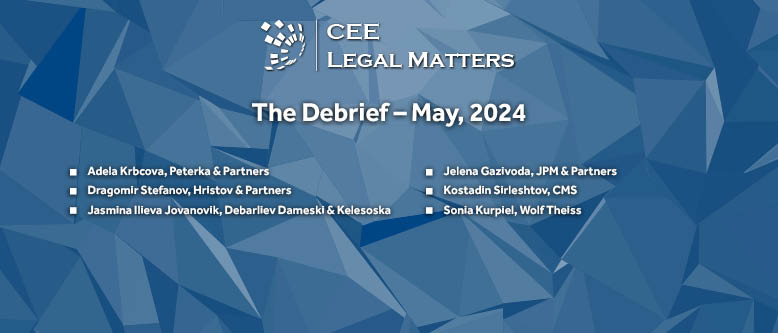Wonga Director of the Legal, Compliance, and HR Department Zuzanna Kopaczynska Grabiec discusses what systems needed to be set up to align with new Polish legislation on whistleblowing and how her team did so.
Implementing Whistleblowing in an International Sports Federation: an Interview with Marianna Erdei of Teqball
“Plan twice to implement once” is Teqball Group Legal Director Marianna Erdei’s approach to implementing new whistleblowing regulations in a manner that is not compliant only with Hungarian law but takes into account the local needs of other jurisdictions.
Whistleblowing: Global Solutions with Local Flavors
With the Whistleblowing Directive implemented into local legislation, whistleblowing has become an essential topic in companies. As national interpretations of the directive on whistleblowing have made it mandatory for organizations to introduce reporting channels and protective measures, businesses must navigate a more stringent and complex legal landscape.
Whistleblowing: A Guide to Basics
An act of “whistleblowing” is usually defined in different vocabulary within the frameworks of management sciences and law perspective. A whistleblowing act happens when a person within or outside an organization, holding sensitive information regarding illegal, unethical, or abusive activities, or any action creating a risk to harm the organization, decides to speak out, to internal or external authorities. Whistleblowers are essentially the messengers who convey the information they have somehow acquired.
Whistleblowing: Nurturing a Culture of Integrity and Accountability
Whistleblowing transcends being a mere procedural checkbox – it is a lifeline for organizational integrity and accountability. It serves as a crucial mechanism for employees, business partners, and third parties to report unethical practices, illegal activities, or violations of company policies within their organizations.
EOS’ ESG Story
ESG has long been considered a niche concept, especially in Bosnia and Herzegovina. However, over time the picture has completely changed and the market has not only mastered the meaning of ESG, but a large number of companies have adapted their business to all or rather most of environmental, social, and governance principles.
Building (and Financing) an ESG Drive: an Interview with Pawel Szczepaniak of mBank
mBank Deputy General Counsel Pawel Szczepaniak talks about how the rise of ESG has shaped in-house legal role but also how his organization literally puts its money where its mouth is when it comes to ESG.
ESG, CSDDD, and the Expanding Role of In-House Counsel: More Than Just Legal Gatekeepers
Environmental, Social, and Governance are no longer mere buzzwords. ESG has become integral to corporate strategy and operations. Companies are now under increasing pressure from regulators, investors, and the public to adhere to ESG standards. The role of in-house counsel in ESG and the implementation of the Corporate Sustainability Due Diligence Directive (CSDDD) requires a balance of legal expertise, strategic thinking, and proactive risk management.
The Digital Euro: A Look at CBDCs in Europe
CMS Hungary Partner Katalin Horvath and CMS Austria Partner Stefan Paulmayer discuss the implications of central bank digital currencies (CBDCs) and the evolving landscape of digital payments in Europe.
Current Trends and Challenges in Slovenia’s Real Estate Market
In recent months, Slovenia’s real estate market has experienced significant shifts driven by economic, technological, and regulatory factors, with more changes expected.
Will New Slovenian Legislation Finally Provide Effective Judicial Protection to Former Holders of Qualified Liabilities of Banks?
On June 15, 2024, the long-awaited Act on the Judicial Protection Procedure for Former Holders of Qualified Liabilities of Banks (ZPSVIKOB 1) entered into force in the Republic of Slovenia.
A Promising Future for PE and VC Funding in Slovenia
Slovenia’s economy has demonstrated resilience and adaptability, with a projected GDP growth rate of 2.3% in 2024, up from 1.6% the previous year. Inflation has stabilized at around 2.8%, and unemployment is at a historically low rate of 3.7%.
Navigating the Revival: The New Era of Real Estate Law in Greece
Following a prolonged financial crisis, Greece’s economic recovery has significantly progressed in recent years, leading to a resurgence in the real estate market. This revival is not just a mere uptick but a significant surge, evident in rising property prices, increased transaction volumes, and growing interest from foreign investors. Prominent areas such as Athens and Thessaloniki and popular islands like Crete, Mykonos, and Santorini have experienced a substantial increase in real estate activity.
The Energy Market in Greece: Legislative Developments and Challenges
The energy market in Greece is undergoing dynamic changes and challenges. The country is trying to adapt to the requirements of the energy transition by focusing on the development of renewable energy sources (RES) and enhancing its energy independence. At the same time, legislative developments and initiatives aim to address existing challenges and promote sustainable solutions.
Navigating the Corporate and M&A Landscape in Greece: ESG Due Diligence in Focus for Sustainable Deal-Making
Despite a slowdown experienced in the Greek M&A sector in 2023, primarily attributed to factors such as inflation, increased interest rates, pervasive geopolitical instabilities, and diverging valuation perspectives between sellers and buyers, the ongoing year of 2024 has seen a notable upsurge in transaction activity. This upward trend underscores the robustness and resilience of the market, which is not only recovering but is also attracting heightened attention from international investors.
The Debrief: August, 2024
In The Debrief, our Practice Leaders across CEE share updates on recent and upcoming legislation, consider the impact of recent court decisions, showcase landmark projects, and keep our readers apprised of the latest developments impacting their respective practice areas.
Guest Editorial: Moving Forward in a Growing Regional Market
Over the past three decades, Central and Eastern Europe (CEE) has experienced significant economic progress, which has catalyzed the development and sophistication of the legal profession within the region. As most economies in the region transitioned from centralized models to more market-driven frameworks, there arose a complex array of legal needs spanning corporate law, international trade regulations, intellectual property rights, environmental law, and others. This economic transformation has facilitated the growth of robust national law firms equipped to manage both the opportunities and challenges inherent in a rapidly expanding market environment.
The Slow Roast of Summer Months
Summer is traditionally a slower period for many, including the legal sector, but, if used right, the time can pay dividends for law firms.

































